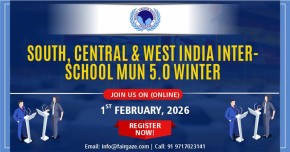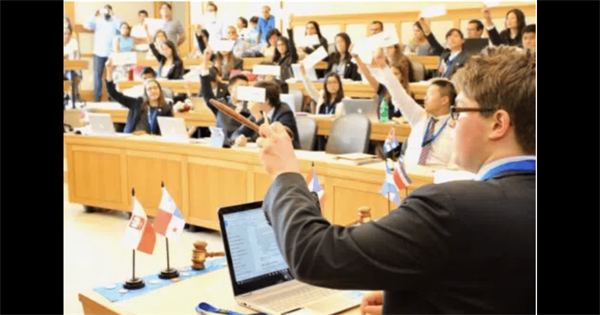
The Power of Body Language in Model United Nations in School
In the hectic, high-stakes model united nations in school conference setting, good communication is very critical. Although delegates have to be quite competent in the subjects, success cannot rely just on substantive knowledge. Equally crucial is the capacity to boldly, clearly, persuasively represent the stance of one's nation.
Here is when a delegate's skill set becomes much enhanced by body language.
Developing Authority and Confidence
Delegates in model united nations in school are expected to advocate for their policy stances and serve the interests of their assigned nation. They have to exude confidence and authority if they are to accomplish this effectively, even if on the inside they are anxious or doubtful. Achieving these calls for good body language.
A delegate's presence in the committee room can be enhanced by tall posture with shoulders back, direct eye contact, and deliberate hand motions. These nonverbal signals give other delegates confidence that calls for respect and attention.
On the other hand, a delegate's credibility may be undermined by fidgety, avoiding eye contact, or slouching, therefore weakening their arguments.
Improving Interpersonal Communication
Beyond displaying confidence, a delegate's verbal communication is much improved by body language. Key topics can be emphasised using gestures, facial expressions, and tone of voice; these help to establish connection with other delegates and increase the interesting and unforgettable quality of a speech.
A delegate speaking on climate change, for instance, might wrinkle their brow to indicate the seriousness of the problem or use broad, sweeping hand motions to show the scope of the problem. Keeping eye contact with several delegates in the room will also enable the speaker to relate to their audience and get feedback.
Reading and Responding to Others
Delegates in the active environment of mun events have to be not only conscious of their own body language but also sensitive to the nonverbal signals of their colleagues. Seeing crossed arms, fidgety behaviour, or avoided gazes can help one understand the perspective of other delegates.
This situational awareness lets delegates modify their strategy. If a delegate observes that their counterpart from a competing bloc seems defensive, for instance, they can decide to use more sympathetic body language to establish trust and identify common ground.
On the other hand, if a delegate believes their argument is appealing to the committee, they can support their stance with open, assured motions.
Overcoming Anxiety and Nervousness
Speaking in front of a big committee might be intimidating for many delegates, particularly those fresh to model united nations in school. Delegates who have awareness of their body language, however, will exude confidence and poise even if they are internally nervous. Delegates can overcome their anxieties and present their country's perspective with conviction by use of practices including eye contact, open body posture, and clear, steady voice.
Under pressure, this calmness can make all the difference between a forgettable performance and one that stays with the committee. In the high stakes environment of MUN events, body language is not only a nice-to-have ability but also a vital tool for a delegate.
Masters of nonverbal communication will be able to project confidence, improve their vocal delivery, read and respond to their peers, and conquer public speaking problems. In the end, these body language moves might make all the difference between a forgettable MUN events experience and a successful one.
Related Blogs
-
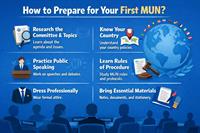
19-Jan-2026 How to Prepare for Your First MUN?
-
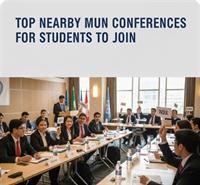
24-Dec-2025 Top Nearby MUN Conferences for Students to Join
-
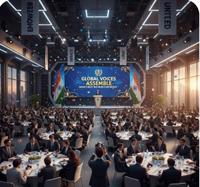
27-Nov-2025 Global Voices Assemble India Next Big MUN Conference
-
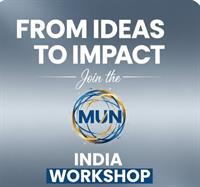
13-Nov-2025 From Ideas to Impact Join the MUN India Workshop
-
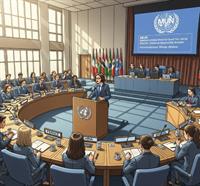
14-Aug-2025 What Is A Conference In MUN?
-
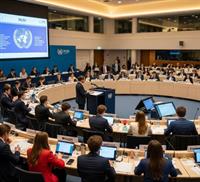
07-Aug-2025 What Does the MUN Do?
-
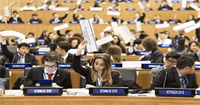
03-Jul-2025 Ways to Research for a Model UN Position Paper
-
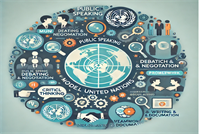
28-Mar-2025 What skills do you gain from Model United Nations?

